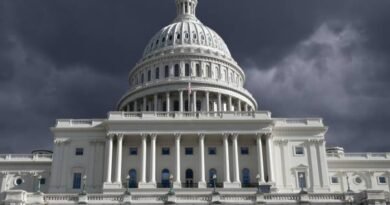Reducing Bureaucracy for Mining Permits Needed as Ottawa Seeks Decoupling From China’s Critical Mineral Supply: Expert
An expert is calling for slashing bureaucracy in permitting mining projects for critical minerals, which is essential to Ottawa’s plans for clean energy transition and decoupling from the supply chains of authoritarian states like China.
In a webinar, hosted by the Macdonald-Laurier Institute (MLI) on Jan. 17, experts examined the recently released Canadian Critical Minerals Strategy. The strategy, announced last December and backed by $3.8 billion in funding in the federal Budget 2022, serves as the guideline for Canada’s mining and processing of critical minerals and rare earth elements.
One central aspect of the strategy is to streamline the permitting processes for mining critical minerals and rare earth elements, which are key to the production of batteries and electric vehicles (EV) for the green energy transition, according to International Energy Agency (IEA).
The strategy noted that the bureaucracy in Canada currently “take[s] anywhere from 5 to 25 years for a mining project to become operational, with no revenue until production starts,” which further hinders critical mineral industrial projects which require large upfront investments and may generate a slow return.
Heather Exner-Pirot, a senior fellow at the MLI, said while the strategy is a “good first step” toward unwinding regulatory burden, Ottawa is not moving fast enough to build mines needed to meet the Liberals’ goal of net-zero emissions.
“The government’s instinct is not to improve the permitting process but add more money to make the bureaucracy go a little bit faster, instead of just reducing the bureaucracy in the first place,” she said. “This is a topsy-turvy world and at some point, we need to make these processes easier, not just help people get through them.”
Exner-Pirot also addressed the question of how Canada and its Group of Seven allies are to create a supply chain for processing the critical minerals that is independent of China, which currently controls most global critical minerals refining. According to the IEA, China’s share of refining is around 35 percent for nickel, 50 to 70 percent for lithium and cobalt, and nearly 90 percent for rare earth elements.
Jeff Kucharski, another senior fellow at the MLI, echoed Exner-Pirot’s view.
“We are making inroads in Canada into domestic EV production. But it’s going to be many, many years—even with the strategy—before we’re actually able to provide all of the elements needed to go into lithium batteries [production],” he said, noting that Canada has only one lithium mine, while the building of a new lithium mine in Quebec was just announced on Jan. 16.
“Getting the volume of product so that we can build an entire value chain here in Canada and North America is going to be extremely challenging. So that means that we’re going to continue to rely on China for many years to come,” he added.





